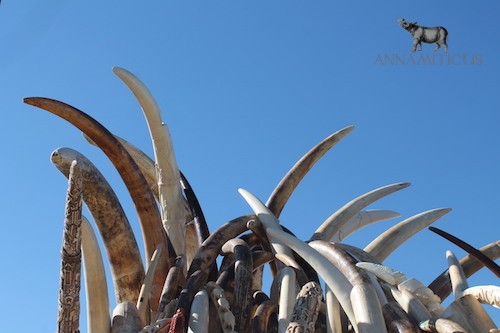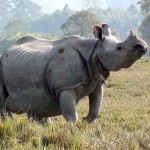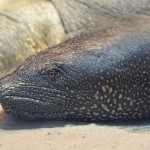
The White House continues to move forward in the battle against wildlife crime with the launch of the “Wildlife Trafficking Alliance” — a coalition which will be working closely with the U.S. government to reduce the purchase and sale of illegal wildlife and wildlife products.
The Wildlife Trafficking Alliance members are taking on the challenges set forth in the National Strategy to Combat Wildlife Trafficking.
Under the leadership of David J. Hayes, former Deputy Secretary of the Interior, now Distinguished Visiting Lecturer in Law at the Stanford Law School and Visiting Senior Fellow at the Center for American Progress, the Alliance brings together all elements of civil society, including interested companies, foundations, and non-profit organizations to work with the U.S. government.
A number of companies have already adopted policies and procedures that align with the goals of the Alliance. Companies such as eBay, Facebook and Google have been helping with initial Alliance activities.
U.S. Secretary of the Interior Sally Jewell, who serves as co-chair of the President’s Task Force on Wildlife Trafficking, welcomed the initiative. She traveled to China and Vietnam last month to meet with senior government officials in both countries to build international cooperation to combat wildlife trafficking.
“We are committed to a multi-pronged fight against wildlife trafficking that includes working to reduce demand and sales of illegally traded ivory and other wildlife products right here at home.”
Secretary Jewell will be traveling to Africa in the coming months to continue the dialogue with stakeholders about how to further strengthen global efforts to combat wildlife trafficking.
According to its website (uswta.org), the Wildlife Trafficking Alliance “will draw on all elements of civil society to accomplish the goals of:
- Raising the public’s awareness of the scope of the wildlife trafficking crisis, including the illegal trade’s devastating impact on elephants, rhinos, tigers and other irreplaceable species, and illegal traffickers’ role in funding global corruption and terrorism;
- Reducing consumer demand for wildlife and wildlife products;
- Mobilizing companies to adopt best practices to insure that their goods and services are not being utilized by illegal wildlife traffickers, and to assist in raising public awareness and reducing demand.”
Protecting wildlife and putting wildlife traffickers out of business is a top priority for the United States. President Obama has outlined new steps to support international efforts against wildlife trafficking:
- $7 million in annual assistance to Gabon, part of a five-year partnership to secure the largest remaining population of forest elephants in Africa;
- $800,000 to protect wildlife in East Africa, including a three-year wildlife poaching and trafficking assessment program in Kenya, conducted in partnership with the International Union for the Conservation of Nature and TRAFFIC;
- $300,000 to study illicit financial flows related to wildlife trafficking in Eastern and Southern Africa, and provide training to fill gaps identified by the study;
- New international wildlife law enforcement attachés in Botswana and Tanzania;
- Continued support to train international conservation law enforcement officers at the International Law Enforcement Academy in Botswana.
To close domestic ivory trade loopholes, the President recently announced that the U.S. Fish and Wildlife Service is proposing new regulations that would prohibit most interstate commerce in African elephant ivory and further restrict commercial ivory exports. This action, combined with others FWS has already taken, will result in a near total ban on the domestic commercial trade of African elephant ivory.
Sources: doi.gov, whitehouse.gov,uswta.org




